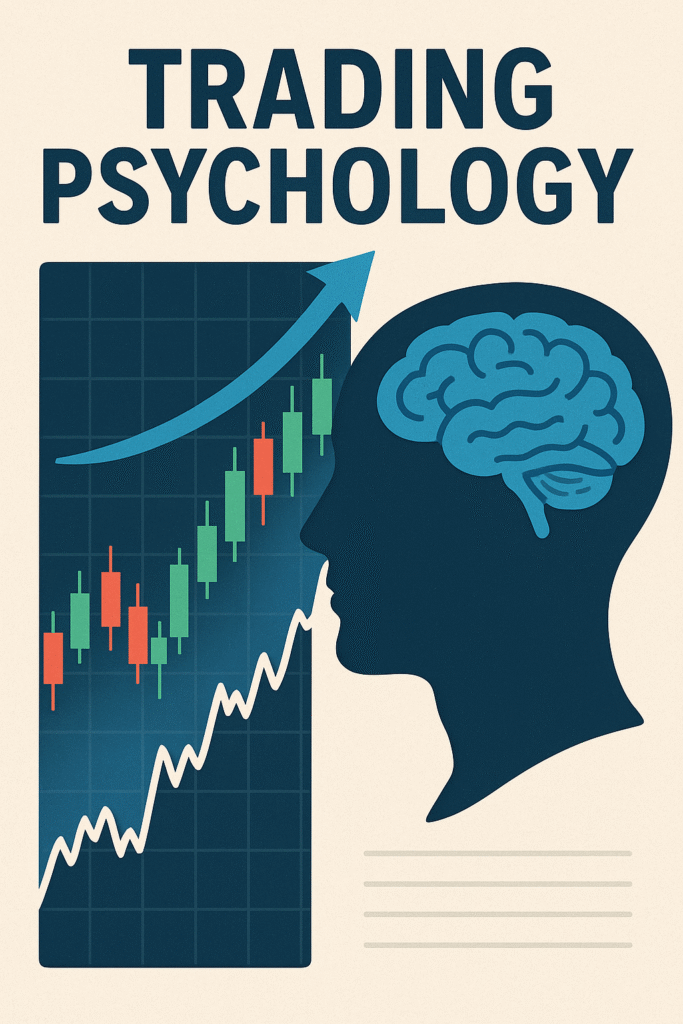Trading Psychology – Mastering the Mental Game of Markets

Discover the essential principles of trading psychology to enhance your decision-making, manage emotions, and improve your trading performance effectively.
Trending News Fox, Digital Desk Team, Kolkata
Edited by Saibal Bose
Understanding Trading Psychology – Mastering the Mental Game of Markets
🧠 Introduction: The Role of Psychology in Trading
Trading isn’t just about charts, technical indicators, or market news—it’s also about mastering your emotions, discipline, and mindset. Whether you’re day trading, swing trading, or investing long-term, understanding trading psychology can make the difference between consistent gains and financial disaster.
Many traders, especially beginners, underestimate the impact of emotional behavior on their decisions. Fear, greed, impatience, overconfidence, and even boredom are just a few psychological factors that influence trading performance.
🧭 Key Components of Trading Psychology
1. Discipline
Discipline means sticking to your trading plan and following your rules, even when the market gets volatile or your emotions flare up. Undisciplined traders often abandon plans and chase losses.
2. Patience
Good trades take time to develop. Successful traders wait for the right setup rather than forcing trades out of FOMO (fear of missing out).
3. Confidence vs. Overconfidence
Confidence comes from practice and preparation. Overconfidence leads to risky trades, oversized positions, and ignoring stop losses.
4. Fear
Fear can paralyze a trader or cause them to exit trades too early. It often stems from lack of trust in their analysis or a fear of loss.
5. Greed
Greed leads to holding positions for too long, overtrading, or risking too much on a single trade. It distorts rational decision-making.
6. Loss Aversion
Many traders hate losing more than they enjoy winning. This bias can cause emotional reactions that sabotage long-term success.
📘 Tips to Improve Trading Psychology
- Keep a trading journal: Log every trade, including emotional state and reasoning.
- Use stop-losses religiously: Protect your capital and stick to your exit plan.
- Practice mindfulness: Techniques like meditation can improve emotional control.
- Avoid revenge trading: Accept losses and move on. Don’t try to “win it back” immediately.
- Take breaks: Stepping away can help reset your mind, especially after a losing streak.
- Set realistic expectations: Trading is not a get-rich-quick scheme.
❓FAQs on Trading Psychology
Q1. Why is trading psychology important?
A1. It affects decision-making, risk management, and overall success. Even with a good strategy, poor psychological control can lead to consistent losses.
Q2. How do I control emotions while trading?
A2. Use risk management tools, follow a written trading plan, and review trades objectively. Meditation and journaling also help.
Q3. What is FOMO in trading?
A3. Fear of Missing Out (FOMO) is the urge to enter a trade too quickly, often after seeing others profit, which usually leads to poor entries.
Q4. Can trading psychology be trained?
A4. Yes. Like physical fitness, psychological strength comes from practice, self-awareness, and learning from experience.
Q5. How do professional traders manage stress?
A5. Through routine, strict risk controls, adequate sleep, and detaching emotions from trading outcomes.
🏷️ Tags
#TradingPsychology #StockMarketTips #MindsetForSuccess #TraderMindset #DisciplineInTrading #EmotionalControl #BeginnerTraders #DayTradingTips #FOMO #TradingDiscipline
Discover more from Trending News Fox
Subscribe to get the latest posts sent to your email.




